US-manufactured munition employed in lethal Rafah strike: Report
Israel used American-made GBU-39 bomb in massacre Sunday, explosive weapons expert tells CNN
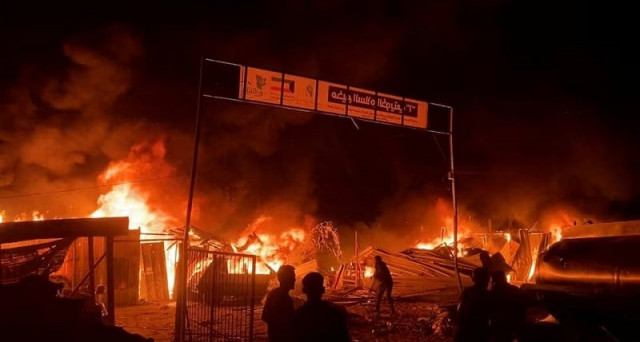
An analysis of video footage and a review by explosive weapons experts revealed that munitions manufactured in the US were used in a deadly Israeli airstrike Sunday on a displacement camp in the Gaza Strip's southernmost city of Rafah.
CNN footage showed large areas of the camp engulfed in flames, as numerous civilians, including men, women and children, desperately sought shelter from the nighttime attack.
Rescuers were seen retrieving charred bodies, including children, from the debris.
Videos that show tents engulfed in flames following the strike on the “Kuwait Peace Camp 1” were geolocated.
In one video on social media, which was confirmed to be the same location by matching details such as the camp's entrance sign and ground tiles, the tail of a US-made GBU-39 small diameter bomb (SDB) is visible, according to four experts who reviewed the footage.
Manufactured by Boeing, the GBU-39 is a high-precision munition "designed to attack strategically important point targets," while causing low collateral damage, explosive weapons expert and former British Army artillery officer Chris Cobb-Smith told CNN.
Cobb-Smith, however, noted that using any munition in a densely populated area always carries risks.
Read also: Israel’s killing of 45 at Rafah camp triggers global outrage
Israeli tanks were seen Tuesday advancing deeper into Rafah for the first time in Israel’s nearly eight-month war on Gaza, marking a new phase in its onslaught.
The airstrike on Sunday killed at least 45 people and wounded nearly 250, said the Gaza-based Government Media Office.
The strike occurred near the logistics base of the UN Agency for Palestinian Refugees (UNRWA) in Tal al-Sultan.
Under repeated questioning by reporters, US National Security Council spokesperson John Kirby said Tuesday that Washington "certainly condemn the loss of life" in the attack on Rafah, but maintained that Israel is continuing to carry out an investigation that he said would shed light on the attack.
"We don't want to see a single more innocent life taken, and I kind of take a little offense at the question. No civilian casualties is the right number of civilian casualties," Kirby said after being asked how many "charred bodies" US President Joe Biden would have to see -- a reference to images that emerged in the wake of the strike -- before he considers changes to US policy.
Read: US says Israel has 'not yet' crossed red lines in Rafah
The attack comes weeks after Biden told CNN earlier this month that he paused arms shipments to Israel because of its offensive on Rafah, where 1.5 million displaced Palestinians have sheltered from Israel’s ongoing war on the Gaza Strip.
The US has traditionally been Israel's biggest supplier of arms.
Biden last month signed a $95 billion foreign aid package which includes $26 billion for Israel.
His administration notified Congress on May 14 about a new more than $1 billion arms package -- including $700 million for tank ammunition, $500 million in tactical vehicles and $60 million in mortar rounds -- that it plans to deliver to Israel, according to media reports.
Israel has continued its brutal offensive on Gaza since a cross-border attack by the Palestinian group, Hamas, on Oct. 7, 2023 despite a UN Security Council resolution demanding an immediate cease-fire.
More than 36,100 Palestinians have since been killed in Gaza, the vast majority being women and children, and over 81,400 others injured, according to local health authorities.
Vast swathes of Gaza lay in ruins amid a crippling blockade of food, clean water and medicine.
Israel is accused of genocide at the International Court of Justice, which in its latest ruling ordered Tel Aviv to immediately halt its operation in Rafah, where more than 1 million Palestinians had sought refuge from the war before it was invaded on May 6.

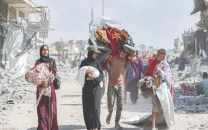

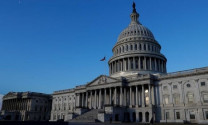
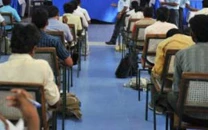
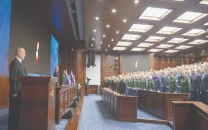




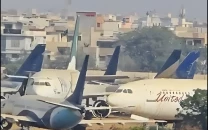
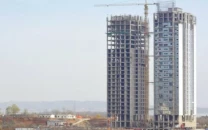







COMMENTS
Comments are moderated and generally will be posted if they are on-topic and not abusive.
For more information, please see our Comments FAQ